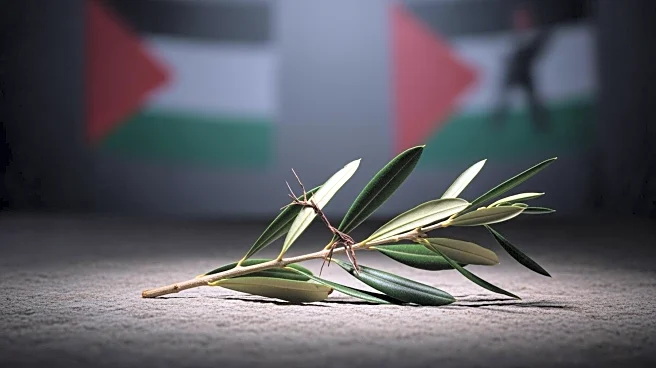What's Happening?
Clashes erupted in southern Gaza as Israeli Defense Forces (IDF) reported an attack on their troops near Rafah, despite a ceasefire agreement with Hamas. The IDF stated that terrorists fired an anti-tank missile and gunfire at their forces, prompting
Israeli airstrikes to dismantle tunnel shafts and military structures used for terrorist activities. This incident marks a significant breach of the ceasefire, which had been in place for over a week. Prime Minister Benjamin Netanyahu and Defense Minister Israel Katz convened an urgent security assessment following the attack. The Israeli government has renamed the ongoing military campaign as the 'War of Revival.' Hamas, however, denied involvement in the Rafah clashes and reiterated its commitment to the ceasefire.
Why It's Important?
The renewed violence in Gaza threatens the fragile ceasefire between Israel and Hamas, which was intended to bring stability to the region. The escalation could lead to further military actions, impacting the lives of civilians in Gaza and potentially drawing international attention and intervention. The situation also poses a challenge to Israeli political leaders, who face pressure from within their government to take decisive action against Hamas. The breach of the ceasefire agreement could strain relations with international mediators, including the United States, which plays a crucial role in facilitating peace efforts and humanitarian aid to Gaza.
What's Next?
Israeli officials are considering resuming limited airstrikes against Hamas targets and reducing humanitarian aid to Gaza, pending U.S. approval. The situation remains tense as both sides accuse each other of violating the ceasefire. Israeli political leaders are calling for a stronger military response, while Hamas accuses Israel of using the ceasefire as a pretext for further aggression. The international community may need to intervene to prevent further escalation and ensure the ceasefire holds.














